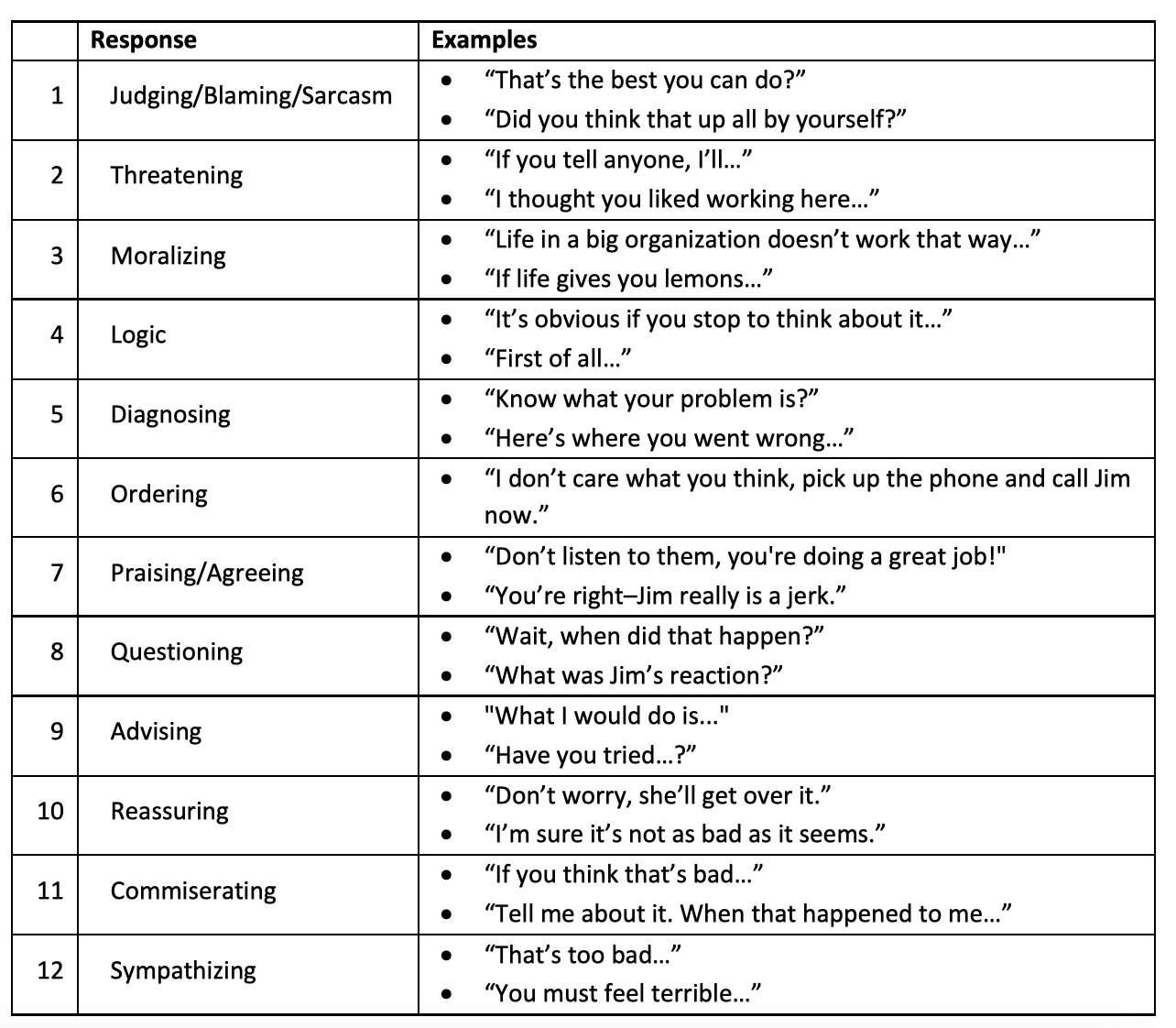Ever feel this way when you’ve been interrupted?

If only all interruptions were so obvious. Most of the ways we interrupt others aren’t, especially when it’s us doing the interrupting.
I define an interruption as inserting my frame of reference into a conversation before the speaker has finished saying all they want to say. If it’s a low-stakes conversation, casual back-and-forths are fine; they don’t feel like interruptions. But when the topic is important to the other person – a problem they’re struggling with, something they’re disappointed about, or are ecstatic about, then listening to their frame of reference before interrupting with your own is the skillful thing to do.
The trick is, we don’t often recognize when someone else has a strong need to be talk. They don’t announce it and we generally aren’t listening for it. Even when we do know, we often think that when someone pauses to breathe, they’re done! We start taking our turn, offering our reactions, thoughts and questions.
But they likely aren’t done. When we insert our perspective before they’ve had their full say, we’re interrupting their flow, their thought process – their frame of reference. It’s not that we’re being intentionally rude; often our efforts are meant to be helpful. But when we share our frames of reference before the other persons is done, the impact can be experienced as an interruption.
Aware of this dynamic, a researcher in the 1970s named Thomas Gordon recorded thousands of hours of families’ dinnertime conversations (remember those?). That’s where most of us develop the communication habits and preferences we use in life, and at work. Gordon ultimately identified twelve common responses that interrupt and often shut down communication. They are:

Some of these are obvious barriers to communication. Judging, Threatening, and Moralizing are rarely helpful, regardless of the circumstances. And while there’s a place for Logic, Diagnosing, and Ordering, a little goes a long way. These responses are generally more harmful than helpful, especially if they become habitual in our communication.
The rest aren’t so obvious. What’s wrong with Questioning and Advising? Isn’t that core to a manager’s job? And Praising, Reassuring, Commiserating, and Sympathizing are bad? In what universe?
Actually they’re not bad. But they do come from our frames of reference – they’re our questions, our advice, our desire to reassure… And if we share them too soon, the speaker can feel like the guy in the cartoon above.
What then to do? Here are a few suggestions (as you may remember from last week, I’m very good at #9):
- Wait. Don’t interrupt the middle of someone else’s frame of reference with your own.
- Listen. Instead of focusing on your frame of reference, tune into the speaker’s. Reflective listening – restating the thoughts and feelings they’re sharing from their frame of reference – is the best way to do this.
- Respond. When they’ve had their say, it’s your turn! Advise, ask questions, agree, disagree, diagnose… You’ve earned the right to speak from your frame of reference. As a bonus, the other person will be more ready to hear your thoughts since you’ve listened respectfully to theirs.
Give it a try and let me know how it goes by commenting below.

Leave A Comment